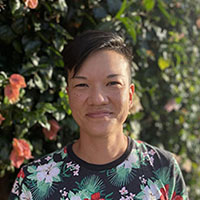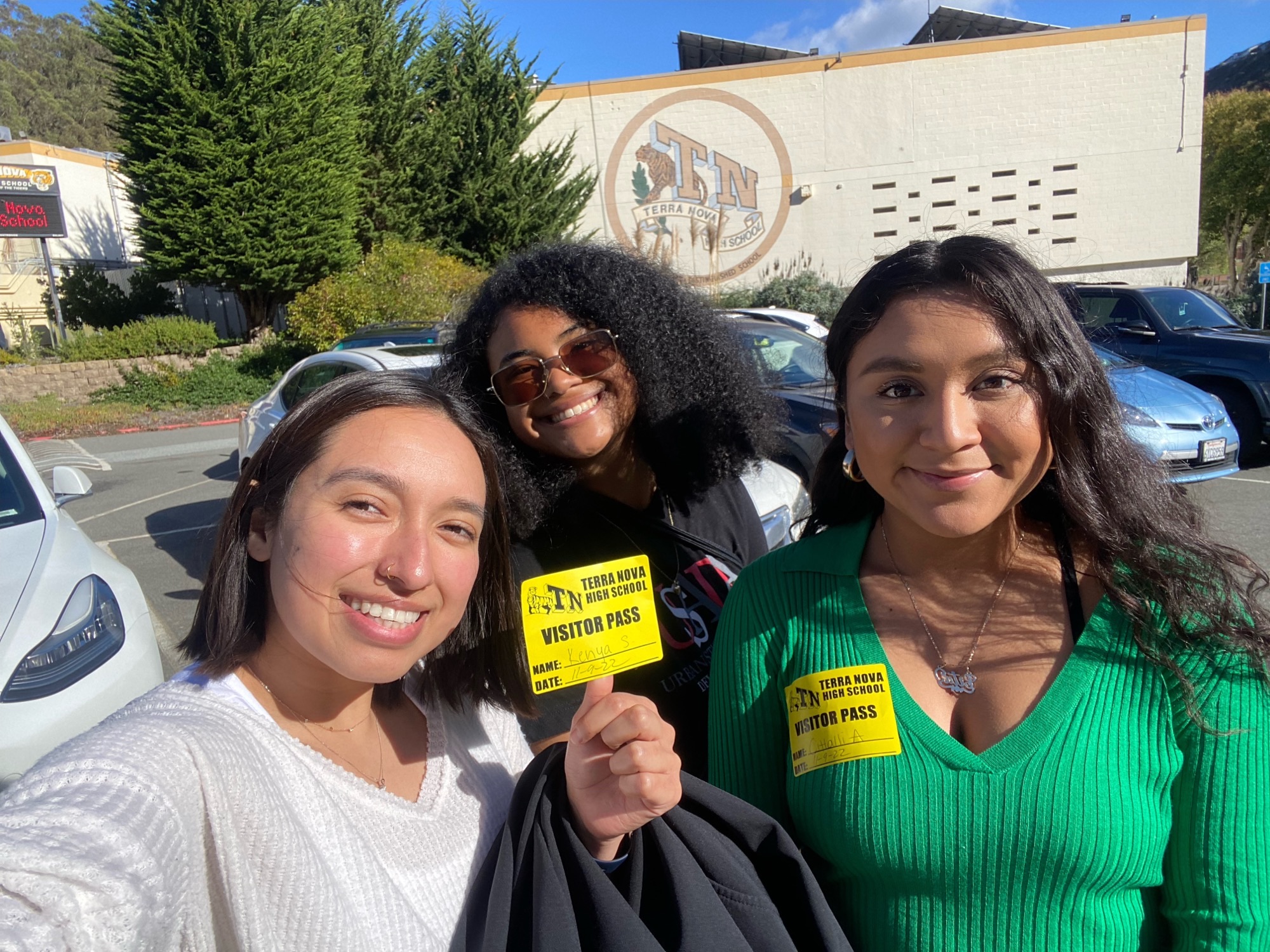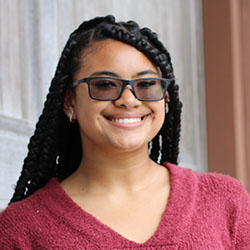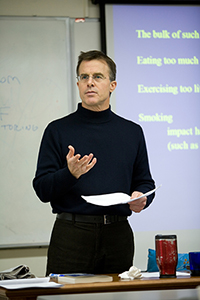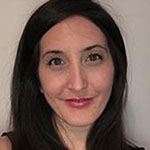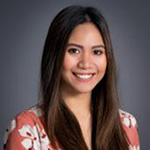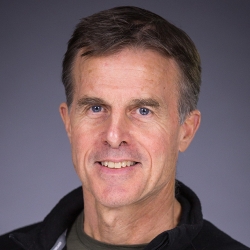Student organizations help a cohort succeed
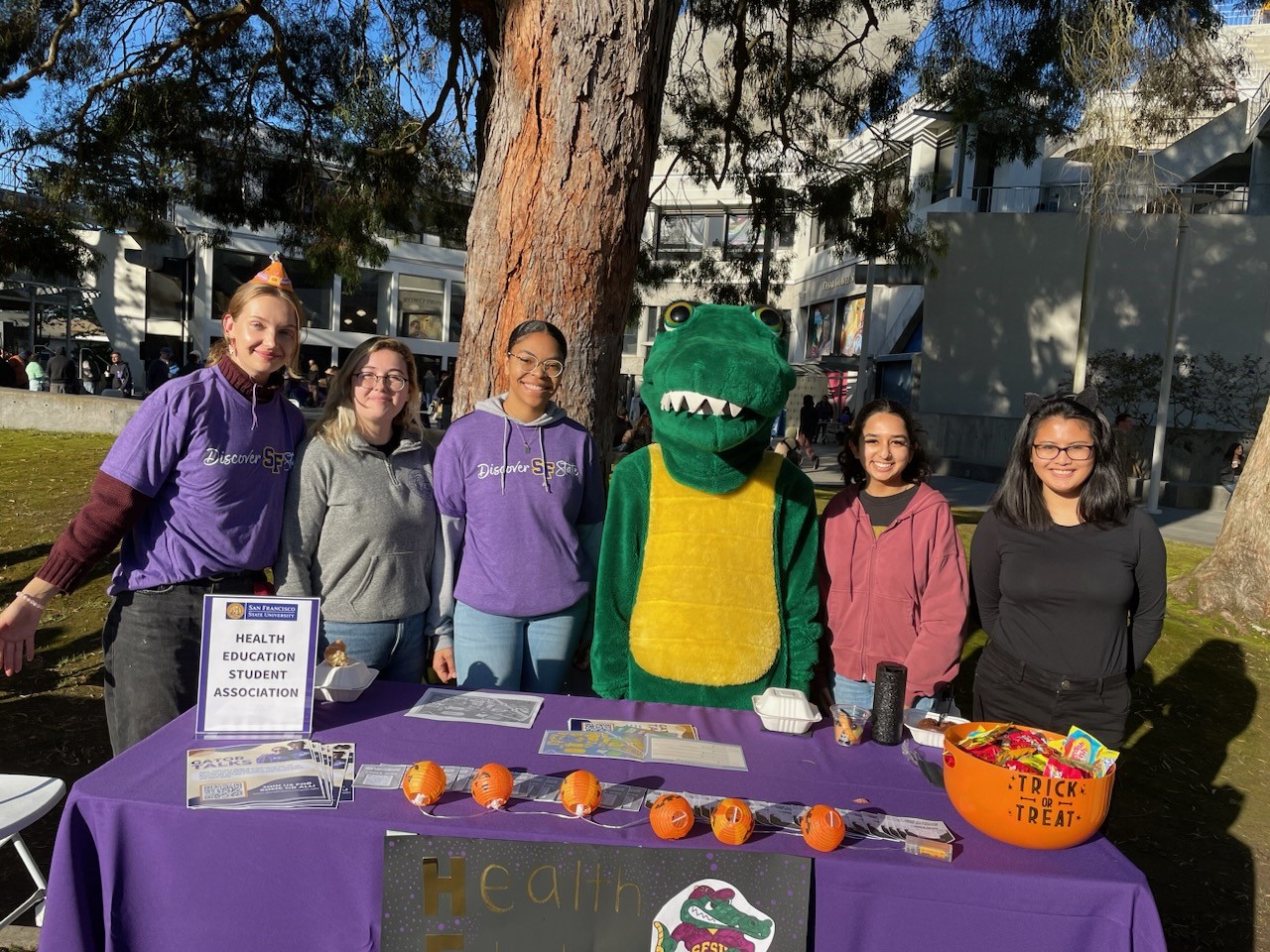
Pictured (left to right): left to right: Greta Erlingis, Shelby Smith, Taelor McDonald, Gator, Serena Padda and Miya Valdehuesa
HESA benefits students across campus
Becoming involved in a student organization helps enrich a student’s experience at San Francisco State University. One such example is the Health Education Student Association (HESA), which offers a way for faculty, alumni and students to connect and create a community. HESA is affiliated with SF State’s Department of Public Health and serves all the students on campus to promote student health, wellness, and overall well-being.
Taelor McDonald is the president of HESA, with Greta Erlingis serving as vice president. McDonald and Erlingis are both Public Health majors and Women’s Health minors. McDonald sees the mission of HESA as “bringing a little light back to students' lives when they are feeling overwhelmed.”
In the wake of remote learning necessitated by the COVID pandemic, McDonald believes making meaningful relationships inside and outside of a student’s cohort has become more difficult. Erlingis feels that connecting with other students during the events HESA organizes gives a sense of community, that everyone is in the college experience together, and helps prevent burnout.
Making personal connections helps academics by creating healthy social behaviors that were lost during COVID. HESA was an important factor for Erlingis to find a place within the cohort, “It is comforting to know that people want to study this and people are passionate about helping others.”
McDonald built a community with her peers by being involved in HESA. Creating study groups, having familiar faces in class and having people asking questions about HESA — not necessarily people involved in the organization — helped McDonald hone her love for leadership. She is now sure that she wants a career in leadership. SF State is a commuter school where students have to try a little harder to find their community. Having HESA creates a community for students, which means a lot to McDonald, “A big part of what public health is, is helping communities and bringing people together in order to improve a common issue.”
Spreading positivity during the transition to campus is something Erlingis feels has been vital to campus relations. HESA uses affirmation boards and focuses on mental health to better the lives of students on campus. Events are always meant to be uplifting for the campus community.
McDonald feels that participating in activities as a group, especially affirmation boards, has improved her mental health. Students in HESA believe that taking care of your mental health is paramount to having a successful college experience. These activities are ways that HESA takes care of the mental health of students in the Department of Public Health.
During events, connecting with students helps prevent those in their cohort from dropping out. The way they see it, everyone uplifts each other and knows that when someone is going through a hard time there is someone they can talk to. The mentality of “We are all in this together” reassures the cohort and reminds them they are not alone.
The senior members of HESA are all graduating at the end of this semester. HESA does not require any prerequisites for application. Elections happen at the end of every semester, anyone interested can send HESA a direct message on Instagram for more information, or email Taelor McDonald at tmcdonald@mail.sfsu.edu or Greta Erlingis at gerlingis@mail.sfsu.edu.
